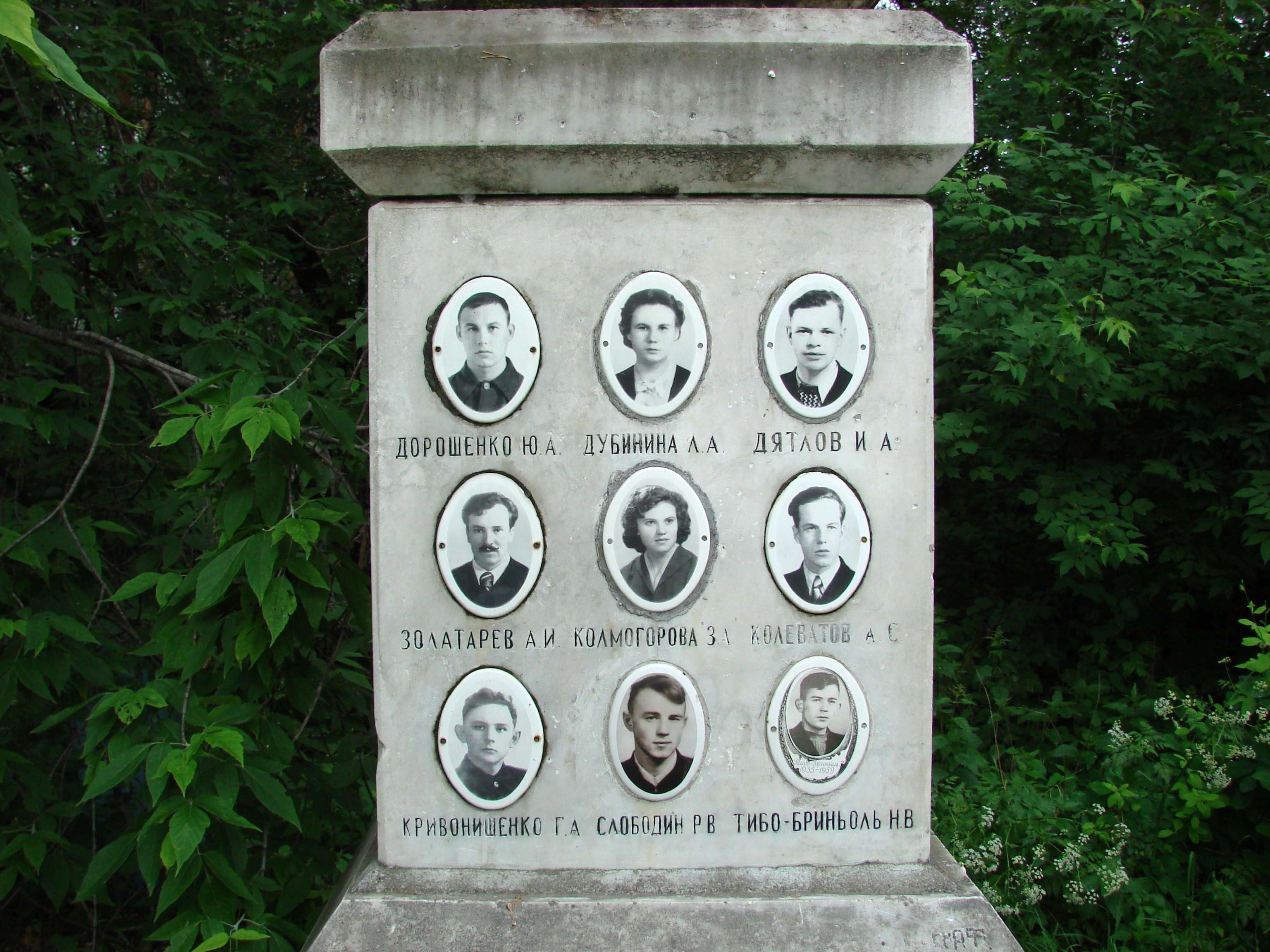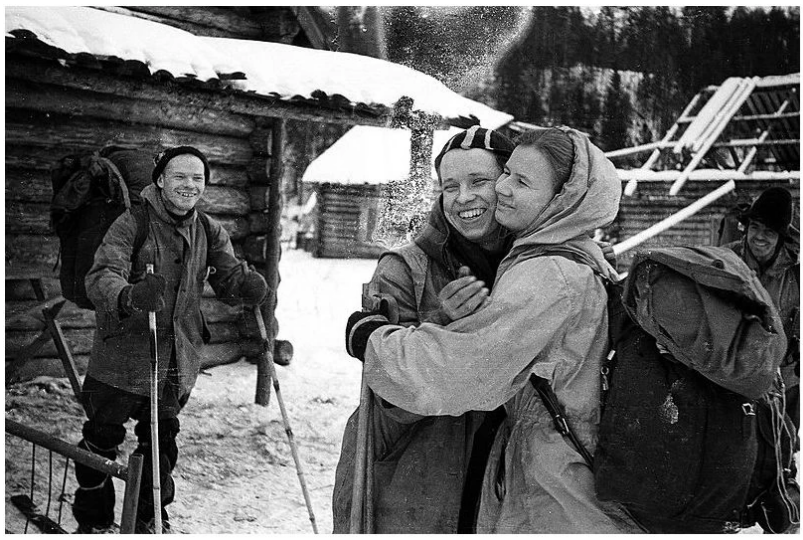Russia Is Reopening an Investigation Into the World’s Greatest Mystery
Credit to Author: Mack Lamoureux| Date: Wed, 06 Feb 2019 19:33:52 +0000
In the deep cold of a northern Soviet Union February in 1959, nine hikers made camp for the night under the peak in the Ural Mountains known as Kholat Syakhl, the Dead Mountain.
The group were residing in a pass they recently discovered named after their leader, Igor Dyatlov. But they weren’t supposed to be there. The eight men and two women ended up in this particular pass due to losing their direction in bad conditions—they were about a week into their 16-day expedition, and about 10 kilometres outside of their turnaround point.
They would never make it through the night. At the end of that cold night on Kholat Syakhl, all nine hikers would be dead—what caused their deaths remains one of the most popular mysteries of the modern era.
And now, Russian police have finally reopened the case—known colloquially as the “Dyatlov Pass incident.” The announcement came last week from the Russian prosecutor general’s office who have vowed to finally put all the theories about the hikers death to rest.

“All of [the deaths] are somehow connected with natural phenomena,” Alexander Kurennoi, a spokesperson for Russia’s prosecutor, said in a video of the announcement. The Russians say that a group of expert investigators and what have you will be involved in this new investigation. While it’s been 60 years since the bodies with the ever so strange positions and injuries were found, Kurennoi said people are still hungry for answers.
“Relatives, the media and the public still ask prosecutors to determine the truth and don’t hide their suspicions that something was hidden from them.”
In order to understand why the mystery of what’s known as the “Dyatlov Pass incident” has been able to survive for 60 years, you needn’t look further than the bodies. The entire expedition—minus one hiker who left earlier because of heart problems—died over the same night.
While the route was known as an exceptionally hard one, the group were experienced hikers and camping out on the pass shouldn’t have proved fatal to them. Therefore, when they didn’t return as expected on February 20, a search party sent out looking for them.
A little under a week after setting off, the party found the tent the group had set—it had been abandoned and was sliced open from the inside. While the camp was deserted, the hikers had left all their belongings and shoes. They seemingly left in a damn hurry through the waist deep snow, leaving behind eight sets of footprints, some of them in socks, some barefoot, others wearing just one shoe. The camp baffled the search party.
It was a few days later when they found the bodies.
The first of the bodies—those of Yuri Doroshenko and Yuri Krivonischenko—were found about a mile from the camp, they were surrounding a small fire under a lone pine tree. Both were stripped to their underwear. It looked like someone had climbed the tree to search for something in the distance. Near this tree, the search party found the bodies of Rustem Slobodin, Zinaida Kolmogorova, and the group’s leader Igor Dyatlov—it was noted these three appeared to perish in attempts to make their way back to the camp.
The last four wouldn’t be found until the snow melted two months later—eventually turning up 75 metres away from the pine tree in a ravine covered in snow. The four who died here were actually dressed for the weather—i.e. not in their underwear.
Initially, no one thought too, too much of the incident—other than it was an expedition that went bad—as the cause of death for the first five found was to be hypothermia. However, the cause of death for ones that turned up after the snow melted was another story. Three of them were found to have suffered severe injuries. One, Lyudmila Dubinina, was found with no eyes and no tongue. Dubinina and Semyon Zolotaryov were found to have major chest fractures, while Nikolai Thibeaux-Brignolles had extensive skull damage—their injuries were likened to that one would suffer in a major car accident. Oddly though, while there was extensive damage, it was reported that there no external injuries dealt to the bodies—it was like they were crushed by something.

On top of the bodies, the amount of weird things have been reported regarding these deaths—some reasonable: trace amounts of radiation on clothes, bodies were a strange tan colour, the eyes and tongue were missing because Dubinina was found in a stream; some not: people seeing orange orbs around the mountain when the hikers were on it, their bodies were prematurely aged, etc—paired with how the Soviets handled it (the deaths were blamed on “spontaneous power of nature” and the case was quickly shuttered) caused many, to this day, to speculate about what actually caused it.
An avalanche? UFOs? Hypothermia driving the crew to madness? A big ol’ stumblin’ Yeti? Taken out by an Indigenous tribe who considered the mountain sacred? Just type in Dyatlov Pass incident into YouTube or where ever you get your conspiracies these days, and prepare your ass. A shit ton of books, documentaries, teams, and what have you have taken time to look into this theory with no one ever definitely being able to say what actually occurred.
One persistent theory is that it was caused by Soviet weapons testing. These theories range almost as widely as the ones listed above. Some have speculated that they stumbled upon a bombing test ground and were running down the mountain to escape the bombardament. Others claim that the army was testing radiological weapons and that’s what caused the weird injuries and the feelings of warmth which led the hikers to stripping.
One explanation, coming from the best-selling book Dead Mountain, is that the wind that whips through Kholat Syakhl in such a way it produces a sound that can cause panic attacks in humans. This caused the hikers to bolt from their tent, and sprint away down the mountain. The injuries to the three bodies were thusly acquired by them falling down the ravine.
Now, hopefully, we’ll get our official answer.
The prosecutor’s office said they will be flying investigators out to the office to investigate the deaths. Now you would think they would have their hands full—even the Russians acknowledge there are about 75 theories surrounding the deaths—however, they’re only going to look into three explanations. The office has officially written off any criminal explanation to the deaths, with Kurennoi saying “there is not a single proof, even an indirect one, to favor this (criminal) version. It was either an avalanche, a snow slab or a hurricane.”
I’m not going to lie, at least to me, blaming the deaths on “either an avalanche, a snow slab or a hurricane” isn’t too far removed from the “spontaneous power of nature.”
Sign up for the VICE Canada Newsletter to get the best of VICE Canada delivered to your inbox.
Follow Mack Lamoureux on Twitter.